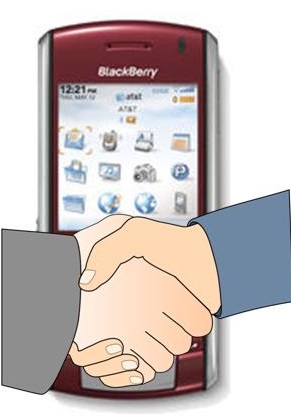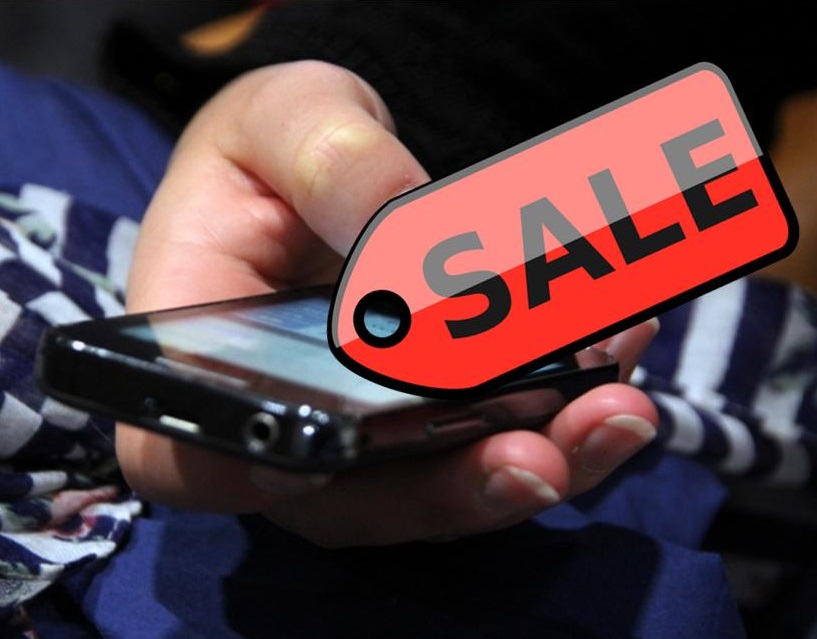The struggling Canadian handset maker has partnered with the Taiwan based electronics manufacturer.
The latest headlines in BlackBerry technology news have revealed that the smartphone maker has now signed a strategic partnership with Foxconn that will last for the next five years.
The purpose of the new contract is to have the devices created for fast growing markets such as Indonesia.
This BlackBerry technology news has revealed one of the major steps that the company plans to take in order to turn around its current dire situation, as it looks toward the future. It is clear that it is looking toward new marketplaces, to make a greater impact in areas where growth is currently the fastest, such as Indonesia.
The BlackBerry technology news has also shown that Foxconn will do some of the company’s manufacturing.
 This five year contract will have Foxconn manufacturing BlackBerry branded mobile phones at a couple of its facilities that are located in Mexico and in Indonesia. This was revealed in a statement that was released at the end of last week. Although Foxconn may be making some of the devices that are being made, it BlackBerry will be holding onto all of its own intellectual property and will be providing product assurance on the devices that Foxconn has manufactured.
This five year contract will have Foxconn manufacturing BlackBerry branded mobile phones at a couple of its facilities that are located in Mexico and in Indonesia. This was revealed in a statement that was released at the end of last week. Although Foxconn may be making some of the devices that are being made, it BlackBerry will be holding onto all of its own intellectual property and will be providing product assurance on the devices that Foxconn has manufactured.
Foxconn currently holds the notable title of being the largest manufacturer on the globe for electronic products. At the time of the writing of this article, no additional details and none of the terms of this partnership had been revealed.
At the same time that this new partnership with Foxconn had been announced, it was also revealed another BlackBerry technology news headline that was far less promising for the company. In it was the statement of losses for the handset maker, which showed that in the third quarter of 2013, it lost 67 cents per share. Analysts had been predicting an average loss of only 46 cents, which shows that the reality was devastatingly worse than forecasts (which were compiled by Bloomberg). Throughout that quarter, the sales had been $1.19 billion, which was notably lower than predictions, which had seen the company bringing in $1.59 billion.
A new report has suggested that shoppers are ready to start to receive notifications based on where they are.
According to a report that has been issued by an in store provider of a mobile marketing platform, Swirl Networks, consumers are becoming increasingly willing to receive location based marketing alerts that are triggered by beacon signals when they enter a shop or other similar places.
This is a trend that has been interesting many tech and advertising giants and was discussed by the MMW earlier this month.
Major technology companies, such as Apple, are now turning their sights toward location based marketing alerts and everything that surrounds them. For example, that company recently launched its iBeacon tech, which gives merchants to provide shoppers with in store messages that draw attention to sales, deals, promotions, and other information that the consumer may find relevant.
One concern some companies have had is whether consumers are ready for location based marketing alerts.
 According to the research outlined in the Swirl Networks report, consumers are ready and willing to start to obtain messages through their smartphones from a store when they have entered its doors. In fact, the study revealed that a considerable 77 percent of shoppers would be willing to share their data regarding the location of their smartphone (which is the central technology for campaigns triggered by beacons) as long as the value that they receive in return is deemed adequate.
According to the research outlined in the Swirl Networks report, consumers are ready and willing to start to obtain messages through their smartphones from a store when they have entered its doors. In fact, the study revealed that a considerable 77 percent of shoppers would be willing to share their data regarding the location of their smartphone (which is the central technology for campaigns triggered by beacons) as long as the value that they receive in return is deemed adequate.
The Swirl Networks study also showed that shoppers also have a greater likelihood of sharing their location data with their favorite retailers (as was the case among 65 percent of the research participants) than they would to Google, Facebook, or shopping or daily deal apps.
According to the report, “As retailers ramp up their use of beacons for in-store mobile marketing, they must overcome the two largest complaints from consumers about today’s mobile shopping alerts: lack of relevance (41 percent) and lack of value (37 percent).” This is important insight for retailers that hope to be able to encourage broad use of their location based mobile marketing alerts without turning off smartphone using customers.
 This five year contract will have Foxconn manufacturing BlackBerry branded mobile phones at a couple of its facilities that are located in Mexico and in Indonesia. This was revealed in a statement that was released at the end of last week. Although Foxconn may be making some of the devices that are being made, it BlackBerry will be holding onto all of its own intellectual property and will be providing product assurance on the devices that Foxconn has manufactured.
This five year contract will have Foxconn manufacturing BlackBerry branded mobile phones at a couple of its facilities that are located in Mexico and in Indonesia. This was revealed in a statement that was released at the end of last week. Although Foxconn may be making some of the devices that are being made, it BlackBerry will be holding onto all of its own intellectual property and will be providing product assurance on the devices that Foxconn has manufactured.
 According to the research outlined in the Swirl Networks report, consumers are ready and willing to start to obtain messages through their smartphones from a store when they have entered its doors. In fact, the study revealed that a considerable 77 percent of shoppers would be willing to share their data regarding the location of their smartphone (which is the central technology for campaigns triggered by beacons) as long as the value that they receive in return is deemed adequate.
According to the research outlined in the Swirl Networks report, consumers are ready and willing to start to obtain messages through their smartphones from a store when they have entered its doors. In fact, the study revealed that a considerable 77 percent of shoppers would be willing to share their data regarding the location of their smartphone (which is the central technology for campaigns triggered by beacons) as long as the value that they receive in return is deemed adequate.